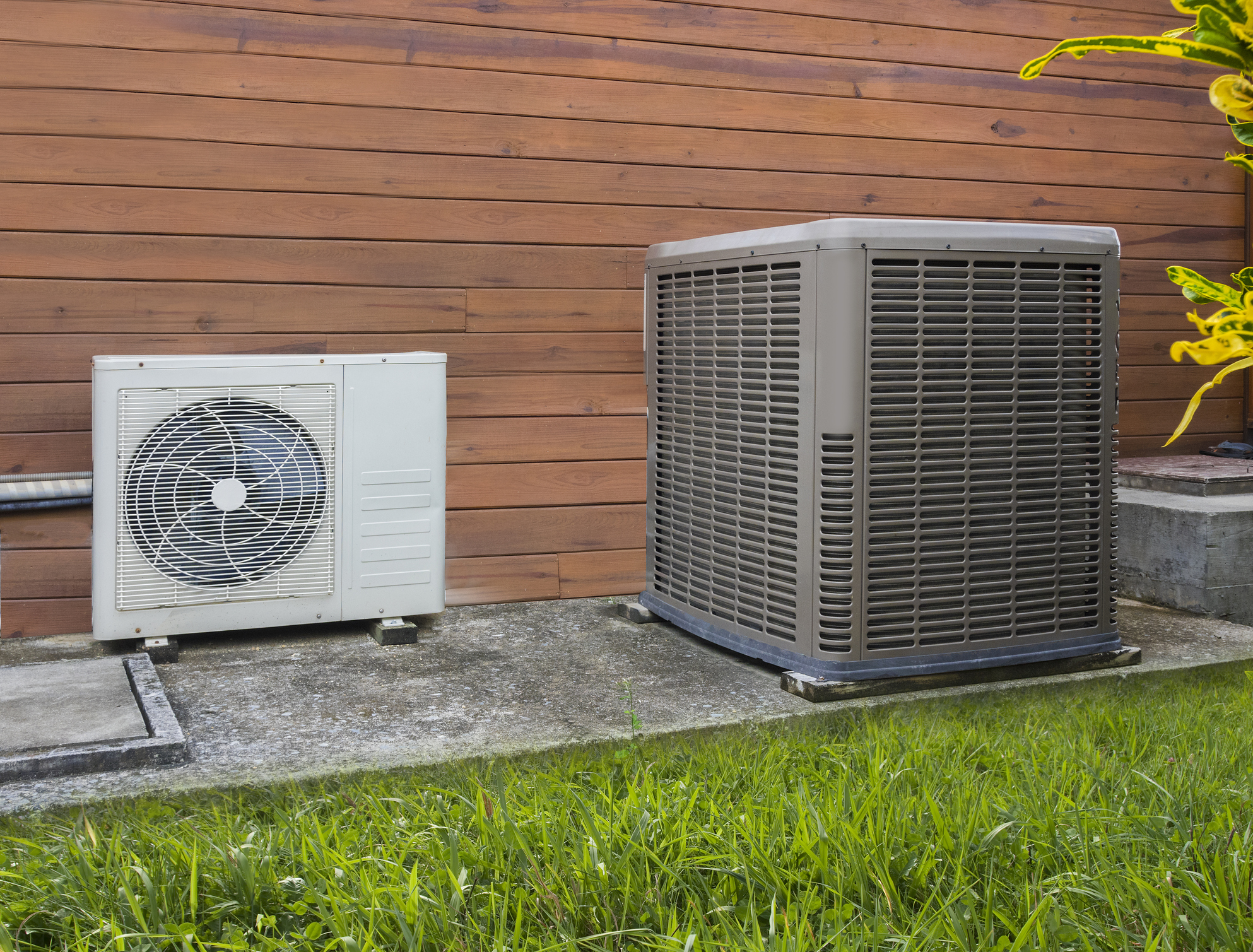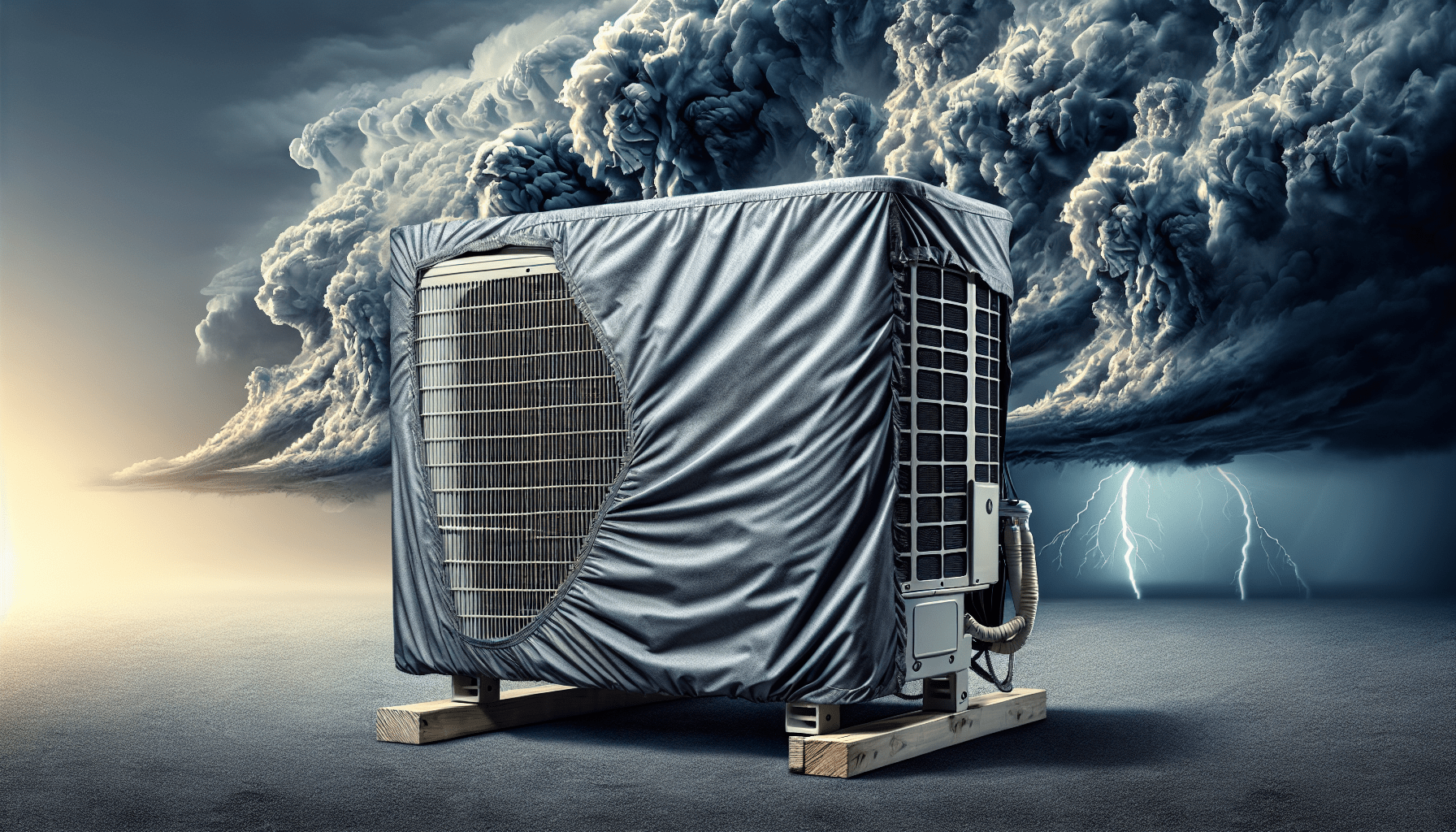So you just bought a new air conditioning unit for your home, but now you’re wondering if it will keep you warm during the colder months too. Well, you’re in luck! In this article, we will explore whether all AC units have the capability to provide heat as well. Whether you’re looking for a year-round climate control solution or simply curious about the capabilities of your new appliance, we’ve got you covered. Let’s dive into the world of AC units and find out if heat is included!

Introduction
Welcome to our comprehensive guide on air conditioning units! In this article, we will delve into the world of AC units, exploring their functionality, types, features, and much more. Whether you’re looking to purchase a new AC unit or simply curious about how they work, you’ve come to the right place. So sit back, relax, and let’s dive into the wonderful world of air conditioning!
Understanding Air Conditioning
What is an AC unit?
An AC unit, also known as an air conditioner, is a device designed to regulate and control the temperature, humidity, and overall air quality in a specific indoor area. It works by extracting heat from the indoor air and transferring it outside, creating a cooler and more comfortable environment.
How does an AC unit work?
The working principle of an AC unit revolves around the laws of thermodynamics. It involves three major components: a compressor, a condenser, and an evaporator. The compressor pressurizes the refrigerant, changing it from a gas to a liquid. The condensed refrigerant is then circulated to the evaporator coil where it absorbs heat from the indoor air, cooling it down. Finally, the refrigerant is recompressed by the compressor and released to the outdoor unit, where the heat is dissipated into the surrounding environment.
Purpose of an AC unit
The primary purpose of an AC unit is to provide comfort by creating a pleasant indoor climate. It achieves this by removing excess heat and humidity from the air, creating a cooler environment during hot weather. Additionally, AC units can also help improve air quality by filtering out dust, allergens, and pollutants, creating a healthier living space.
Types of AC Units
Window AC units
Window AC units, as the name suggests, are installed in a window or through a specially designed opening in a wall. These units are compact, affordable, and easy to install. They are typically used to cool single rooms or small spaces. Window AC units consist of a single unit that houses all the components, including the compressor, condenser, evaporator, and the cooling fan.
Split AC units
Split AC units are composed of two separate components: an indoor unit and an outdoor unit. The indoor unit, which contains the evaporator and the cooling fan, is installed inside the room, while the outdoor unit houses the compressor and the condenser. Split AC units are known for their quiet operation and are suitable for cooling larger areas or multiple rooms.
Central AC units
Central AC units are the most comprehensive and powerful cooling systems available. They consist of a central unit connected to a series of ducts that distribute the cooled air throughout the entire building. Central AC units are commonly used in larger residential properties or commercial buildings.
Portable AC units
Portable AC units offer the flexibility to move them from one room to another. They are self-contained units that extract heat from the air and cool it down. Portable AC units are particularly suitable for spaces where window installations or permanent fixtures are not feasible.
Features of AC Units
Cooling capabilities
The primary function of any AC unit is cooling. The cooling capacity of an AC unit is measured in British Thermal Units (BTUs) and indicates how much heat the unit can remove from the air within a given time. The cooling capabilities of AC units vary depending on the type and size of the unit.
Heating capabilities
Some AC units come with built-in heating capabilities, allowing them to provide warmth during colder seasons. These units often utilize electric resistance or heat pump technology to generate heat. The heating capability of an AC unit is measured in BTUs and is a crucial feature to consider, especially in regions with fluctuating climates.
Energy efficiency
Energy efficiency is an important aspect to consider when choosing an AC unit. Highly efficient units can significantly reduce energy consumption, saving you money on utility bills while also reducing environmental impact. Look for AC units that have high Seasonal Energy Efficiency Ratio (SEER) ratings, as they indicate better energy efficiency.
Air filtration
Air filtration is another notable feature of AC units. Many AC units come equipped with filters that capture dust, pollen, allergens, and other airborne particles, improving indoor air quality. It is essential to regularly clean or replace these filters to maintain optimal performance and prevent the distribution of pollutants.
Smart controls
The advent of smart technology has brought about the integration of AC units with advanced control systems. Many modern AC units offer remote control functionality, allowing you to adjust the temperature, fan speed, and other settings from anywhere within range. Additionally, some units can be connected to home automation systems or controlled through smartphone apps, providing convenience and energy efficiency.

Heat Pump vs. Air Conditioner
What is a heat pump?
A heat pump is a type of HVAC system that can both cool and heat a space. It functions similarly to an air conditioner but can reverse its operation, extracting heat from the outdoor air and transferring it indoors to provide warmth during colder months. Heat pumps are particularly efficient in regions with mild to moderate climates.
Differences between a heat pump and an air conditioner
While heat pumps and air conditioners have similar cooling capabilities, the main difference lies in their ability to provide heating. Air conditioners solely focus on cooling by removing heat from the indoor air and releasing it outside. In contrast, heat pumps can reverse their operation, extracting heat from the outdoor air and transferring it inside to warm up the space.
Benefits of using a heat pump
Using a heat pump offers several benefits. Firstly, it provides both cooling and heating capabilities in a single unit, making it a versatile solution for year-round comfort. Heat pumps are also known for their energy efficiency, as they can transfer heat rather than generate it. This can result in significant energy savings compared to traditional heating systems.
AC Unit with Heat
AC units with heating capabilities
AC units with heating capabilities, also known as heat pump AC units, combine the features of an air conditioner and a heat pump. These units can provide cooling during hot weather and heating during colder seasons. They are ideal for regions where temperature fluctuations occur, offering a cost-effective and efficient solution for year-round comfort.
Benefits of having an AC unit with heat
Having an AC unit with heating capabilities offers several advantages. Firstly, it eliminates the need for separate cooling and heating systems, saving space and installation costs. It also provides consistent comfort throughout the year, allowing you to maintain a steady indoor temperature regardless of the season. Additionally, heat pump AC units are generally more energy-efficient compared to traditional heating systems, reducing energy consumption and utility expenses.

AC Unit without Heat
AC units without heating capabilities
AC units without heating capabilities, often referred to as cooling-only AC units, are designed solely for cooling purposes. These units are suitable for regions where heating needs are adequately addressed by other means, such as gas furnaces or electric heaters. AC units without heat are typically more affordable and simpler in design compared to units with additional heating features.
Why would someone choose an AC unit without heat?
There are several reasons why someone might choose an AC unit without heat. In regions with warm climates year-round, where heating requirements are minimal or non-existent, a cooling-only AC unit may be sufficient. Additionally, in spaces where alternative heating systems are already in place, such as apartments with central heating, investing in an AC unit without heat can be a more practical and cost-effective choice.
When Should You Consider AC Units with Heat?
Seasonal climate variations
If you live in a region with significant seasonal temperature variations, an AC unit with heating capabilities may be a wise investment. By providing both cooling and heating functions, these units ensure comfort throughout the year, eliminating the need for separate cooling and heating systems.
Limited heating needs
In areas where heating requirements are minimal or limited to specific rooms, AC units with heating capabilities offer a convenient solution. Instead of installing heating systems throughout the entire space, a single unit can provide localized or zoned heating when needed.
Cost considerations
Cost is another factor to consider when deciding between AC units with or without heat. Cooling-only AC units are generally more affordable and have lower upfront costs compared to units with heating capabilities. If you have a limited budget or don’t anticipate high heating demands, a cooling-only unit may be a more cost-effective choice.

Factors to Consider
Climate
The climate of your region plays a crucial role in determining the type of AC unit required. If you experience hot and humid summers, a high-capacity cooling unit is essential. On the other hand, if winters are particularly cold, an AC unit with heating capabilities, such as a heat pump, may be necessary.
Size of the space
The size of the space you intend to cool is another critical factor. AC units come in various sizes and capacities, ranging from small units suitable for individual rooms to larger units designed to cool entire buildings. It is important to choose an appropriately sized unit to ensure efficient and effective cooling.
Budget
Budget considerations are vital when purchasing an AC unit. Cooling-only AC units tend to be more affordable compared to units with heating capabilities. However, investing in a more energy-efficient unit may result in long-term savings on energy consumption and utility bills.
Energy efficiency
Energy efficiency is an essential aspect to consider, as it directly impacts operating costs and environmental impact. Look for AC units with high SEER ratings, as they indicate better energy efficiency. Additionally, units with ENERGY STAR certifications meet strict energy efficiency standards and are worth considering.
Installation requirements
Consider the installation requirements of the AC unit, especially if you are retrofitting an existing space. Some units require professional installation, while others, such as window AC units, can be easily installed by homeowners. Portable AC units offer the most flexibility in terms of installation, as they can be moved and set up without specialized help.
Conclusion
Choosing the right AC unit for your needs requires careful consideration of factors such as cooling capabilities, heating capabilities, energy efficiency, and budget. AC units with heating capabilities, such as heat pump AC units, provide a versatile solution for year-round comfort, while cooling-only AC units are suitable for regions with minimal heating demands. By considering your climate, space size, budget, and installation requirements, you can select the perfect AC unit to create a comfortable and enjoyable indoor environment all year long.






